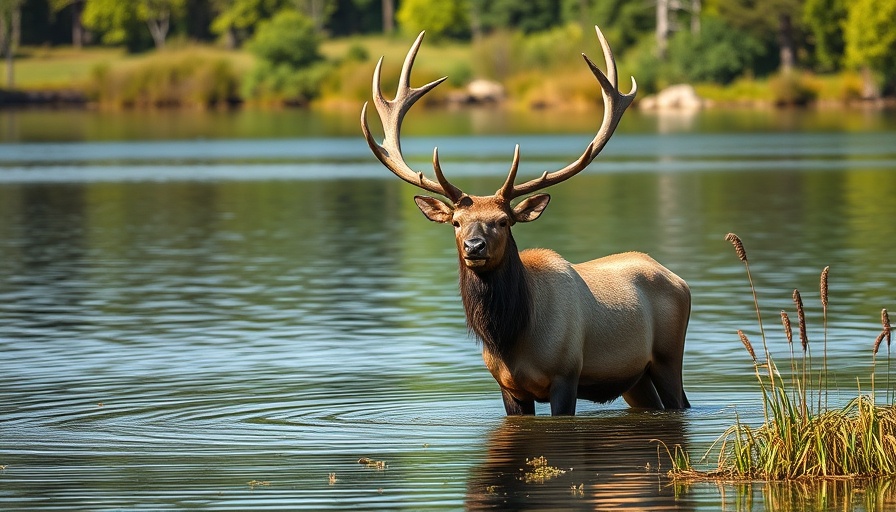
The Exciting Return of European Elk to the UK
For the first time in 3,000 years, elk may soon roam the woodlands of the UK once again, thanks to an ambitious rewilding initiative led by the Derbyshire and Nottinghamshire Wildlife Trusts. This endeavor comes on the heels of successful reintroductions of beavers in the UK, which have revitalized wetland ecosystems. As keystone species, elk, along with beavers and bison, not only play vital roles in their ecosystems but also help to foster biodiversity and promote healthier environments for both wildlife and humans.
Why Elk Matter to Our Ecosystems
Elk, or European moose (Alces alces), are known to forage in wooded areas and graze in wetlands. Their behavior contributes significantly to the regeneration of ecosystems. By consuming leaves, twigs, and submerged vegetation, elk facilitate the spread of seeds and help maintain the structural integrity of forests and wetlands. This process supports a diverse range of flora and fauna, ultimately benefiting local habitats and communities.
Building on the Success of Beaver Reintroductions
The return of beavers to the UK has demonstrated how reintroducing native species can help restore ecosystems. Just like beavers, elk are native to the UK, having both disappeared due to hunting and habitat loss. As Rachel Bennett, deputy director of Wilder Landscapes, noted, releasing elk into existing beaver enclosures presents a unique opportunity to explore how these two species coexist and enhance floodplain landscapes. The synergy between the two could pave the way for creating diverse habitats that both support biodiversity and engage local communities in conservation efforts.
Funding for Rewilding Initiatives
The Rewilding Innovation Fund, managed by Rewilding Britain, is providing almost £180,000 ($239,000) across 13 projects focused on ecological restoration. This funding represents Rewilding Britain's largest investment for a single set of rewilding projects. The proposals include bison reintroductions, seagrass restoration in Cornwall, and temperate rainforest projects in the Scottish Highlands, all aimed at stimulating a more robust and resilient ecosystem.
Community Engagement and Education
This reintroduction project not only aims to restore elk populations but also to foster community interest and involvement in local ecosystems. Engaging the public through educational initiatives and opportunities to witness rewilding firsthand can significantly impact local attitudes toward conservation. The elk's charismatic presence could appeal to the community, encouraging collaboration between environmental organizations and local residents.
Future Predictions: A Keystone Species Making a Comeback
Looking ahead, the successful reintroduction of elk could have profound implications for land management and wildlife conservation in the UK. This initiative could serve as a catalyst for broader rewilding efforts, potentially influencing policies and practices that prioritize biodiversity. Elk are known to modify their habitats in ways that promote diverse plant and animal life, which is especially vital given the ongoing environmental challenges posed by climate change.
What You Can Do to Support Rewilding Efforts
As the UK embarks on this significant ecological journey, there are many ways for individuals to support rewilding efforts. From local volunteering opportunities with conservation organizations to advocating for sustainable land use practices, every action counts. Engaging in community discussions about the return of native species, such as elk, fosters a sense of stewardship and highlights the importance of working collaboratively for the environment.
In conclusion, the planned reintroduction of European elk to the UK represents a thrilling opportunity not just for wildlife and ecosystems, but for communities as well. This initiative could spark renewed interest and investment in local habitats, promoting a healthier environment for generations to come. Join us in supporting these vital efforts towards rewilding and biodiversity recovery!
 Add Row
Add Row  Add
Add 





 Add Row
Add Row  Add
Add 








Write A Comment